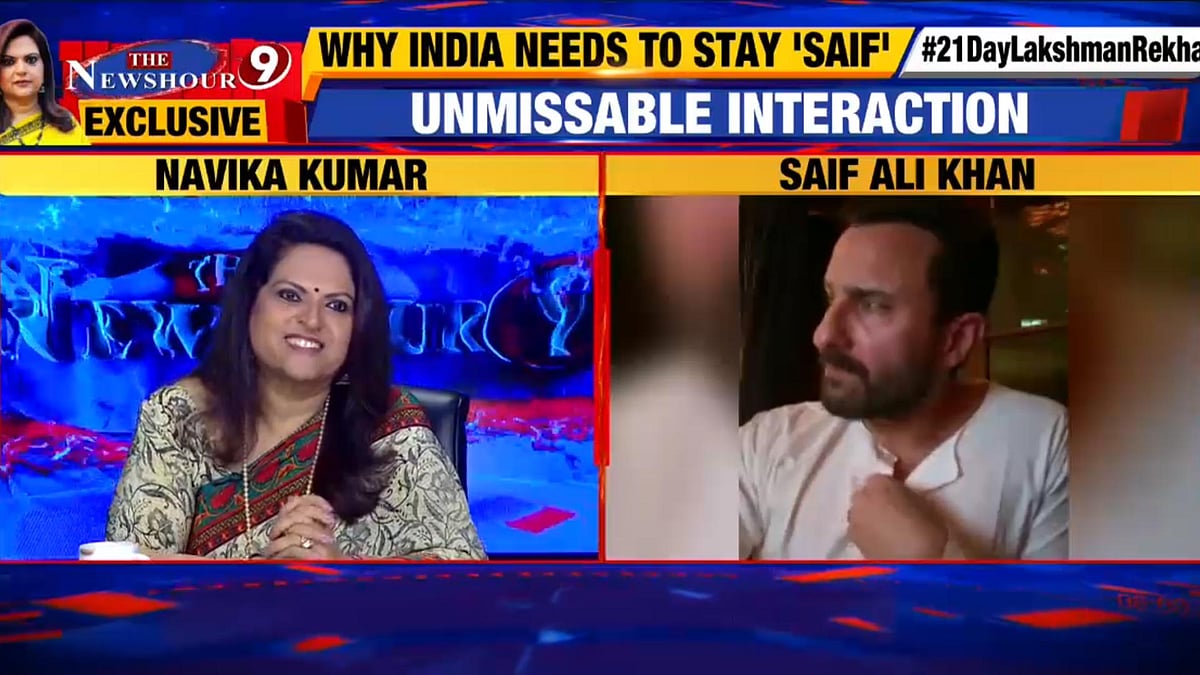In Delhi, newspaper vendors are caught between customers and coronavirus
The distribution system makes them pay for the paper, but the pandemic keeps them from recovering the cost from the customer.
It is never just the reporter who brings the news to the reader. The vendor is an unacknowledged messenger. Since March 24, a nationwide lockdown to combat the novel coronavirus pandemic has pushed most journalists inside their homes — but the work goes on on the world wide web.
A vendor has no such luxuries and so, he feels the heat.
There are nearly 800 active cases of coronavirus in India, with 19 deaths, as of March 28. On March 24, Prime Minister Narendra Modi announced that “every state, every district, every lane, every village will be under lockdown” till April 14. Indians have been encouraged to step out of their homes only to procure essential supplies.
There’s a divide on the question of newspapers. While major Indian newspapers have halted printing in cities like Mumbai for the duration of the lockdown, the production and circulation remains unabated in Delhi.
The Times of India, for instance, stopped printing all its editions in Mumbai on March 23. A senior official in the dissemination department of the paper told Newslaundry that the decision was taken in view of the “hawkers' problems", adding: “No decision has been taken yet on what will happen next. The hawkers have announced not to distribute the newspaper till March 25, so the publication of the newspaper will remain postponed till the 25th.”
Asked if this would extend to March 31, the official claimed he has no idea. “But the situation is such that the publication of the newspaper does not seem possible. There is a problem in distributing the newspapers rather than publishing them," he said.
Newslaundry has learnt that the paper is not publishing physical copies as of March 28.
Mumbai’s Hindustan Times and Mid-Day have taken similar calls. A poster by Mid-Day on March 23 said that it is prioritising the safety of delivery men, given the lockdown in Maharashtra. “The newspaper will be back at your home soon,” it said.
In a vague frontpage message, Hindustan Times told its readers that it may have to “make some changes in the nature of offering” in the “days and weeks that follow”.
Both Mid-Day and HT have not published physical copies in Mumbai since March 23. Like Times, the papers have kept the duration of their decision open-ended, keeping mum about how long the newspapers will be missing in print.
Newspapers continue to publish in Delhi, but they are not reaching each and every home that they used to.
The reason for this is a schism among newspaper vendors in the city. The lockdown has put them in a precarious position to choose between customers and coronavirus. Whereas some vendor unions have taken a call to pause distribution in the wake of the pandemic, others have continued to do their jobs because their livelihood depends on it.
How the newspaper reaches your home
Every morning, vans carry newspapers from the printing press to depots around Delhi. The publication sends its associates to every depot, where they sell bundles to vendors for a price marginally lower than the MRP. The vendors have to pay the money then and there.
The vendors then hand the papers to the hawkers, most of whom distribute it as a part-time job. Hawkers add pamphlets to these newspapers, organise them, and bring them to your doorstep.
The vendor finally recovers his costs at the beginning of every month when the customers pay him. This money is then re-invested into buying newspapers every day. The hawkers are also paid, and what remains then is the vendor’s livelihood.
Since the lockdown began, vendors in Delhi have been paying the newspaper associates everyday, but they’re uncertain about recovering the money from the customers.
How the lockdown has affected the vendor economy
The pandemic has spooked many newspaper consumers who believe that the chain of transportation and distribution risks infection through the middle-men. It is a seemingly possible scenario, since the novel coronavirus spreads through physical transmission.
An article in The Print recently argued that that “amongst all the scenarios through which the virus can spread, transmission through newspapers is the least probable.” However, one of the experts that The Print consulted claimed that the virus could spread if an infected hawker sneezes on a newspaper.
(Times Group served The Print with a legal notice for this report, calling its claims “absolutely without basis and without appropriate findings by any health or statutory authority”.)
Akash, who has been selling newspapers in the Delhi University area since 1983, said that most people have refused to take newspapers. "I got calls from about 70 people in a day to stop the newspaper," he told Newslaundry. He claims that more than 60 hawkers in his area have decided to halt distribution.
The reason for this is the nervousness about contracting the virus, which Akash thinks is justified. “Newspapers pass through many hands. Some people are taking care of cleanliness but many people have neither so much facility nor vigilance,” he said.
A welfare association of newspaper distributors in Rohini wrote to media outlets on March 23, notifying them that they will not be distributing newspapers till March 31. The head of the body, Vijay Poddar, made the announcement on behalf of vendors.
“This step is in the interest of the society, nation and the brothers involved in the process of distribution...I expect you to accept this request,” the letter said.
Poddar told Newslaundry that more than 1,200 newspapers are distributed daily in Rohini under his supervision. But customers have asked him to halt the operations.
He said: “On Sunday, during the janta curfew, when my boys went to societies to distribute newspapers, people categorically refused to take newspapers till March 31. Moreover, more than 40 hawkers also refused to distribute the newspaper due to fears of the coronavirus outbreak. We are suffering a lot due to this, but what can we do?”
Not just Rohini, vendors in other parts of Delhi have also paused distribution. In Kamala Nagar, 61 vendors signed an undertaking on March 23 that they will not distribute newspapers till March 31.
“The following vendors from Kamala Nagar have denied taking newspapers between March 24 and March 31 due to the COVID-19 epidemic,” the undertaking said. “I would like to extend the reason here: that readers don’t want to receive newspapers anymore.”
RK Mishra, 50, one of the signatories, told Newslaundry he worries about spreading the infection when he delivers the newspapers. And some customers told him they were worried too.
“First there’s life, then the money,” he said.
Asked if he would extend the break from March 31 to April 14 — the day the national lockdown ends, tentatively — Mishra said that he and other vendors will have to assess the situation near the end of March and then take a call.
Mishra has been a vendor in Delhi for three decades, but he also has a second profession as a chemical manufacturer and trader. At dawn everyday, he and his elder son double up as vendors and hawkers in Kamala Nagar, Delhi University area, and Gulmandi in Central Delhi. They turn to the chemical business later in the day. Since Mishra can secure his livelihood through a second avenue, he can afford to give up vendorship during the lockdown.
Customers are divided
Uma Shankar, 60, the president of a newspapers association in East Delhi, told Newslaundry that there are customers who insist that they would like to receive their newspapers.
“Societies have stopped newspapers en masse, but there are local colonies where people are divided. In an LIC apartment in Vishwas Nagar, an old woman called me and said that her 78-year-old husband would die if he did not receive his newspaper,” Shankar said. “She even cried. So I have to send a boy with papers.”
Shankar, who has 15 hawkers under him, added: “The police are also threatening us, so hawkers are afraid. I earn Rs 5,000 every day through this, but that has come down Rs 2,000 now.”
Anil Tiwari, 45, is a vendor who operates in Azad Nagar, Kanti Nagar, and Bihari colony. He told Newslaundry that 200 of his 1,300 customers have declined newspaper delivery, but he is delivering to the rest. “Customers call us incessantly and so we have to go unwillingly and deliver. This is our only source of income. If we don’t go, then they will start paying some other vendor. We don’t want to lose them,” he said.
But as Tiwari pays the newspaper companies for procuring papers for customers, he is not recovering the cost from them. Nor does he have a second profession, like Mishra.
“There is no payment collection. We have to go and collect the payment from the customer which has turned into a task,” he rued. “We’re afraid that the customer might be unhealthy and they fear the same about us. On the other hand, the publication associates say that if you do not give us money, we cannot give you the papers.”
Tiwari claims that newspapers have also made calculations of profit. They know that smaller and cheaper papers have halted publication during the lockdown, so they send their copies in larger numbers. “This creates a greater demand for them. Since the readers who subscribe to cheaper papers do not want to miss the news, we have to buy the expensive ones to replace it,” he explained. “So we’re spending more and more and earning less and less.”
But some flickers of hope remain. Rajesh Dubey, 35, a vendor in East Delhi’s Krishna Nagar, says that distribution schemes by papers like the Times of India and Hindustan Times hold the possibility of income in these dire times.
“As part of a scheme, these papers take advance money from customers, part of which is paid to us. Suppose you want the newspaper for 15 months, HT will take Rs 900 in advance and will deliver you the paper for that period,” he explained. “We get our monthly income from this money. I’m hoping that the newspapers will pay us.”
Tiwari, whose family has been delivering newspapers in Delhi since the early 1960s, said that savings are helping the family get by. “Everyone keeps some money for investment in such precarious situations. Some money is lent or borrowed, and this is what is helping us...”
He paused. “For now.”
With inputs from Basant Kumar
 TV anchors in times of a pandemic: Is Taimur missing the paparazzi?
TV anchors in times of a pandemic: Is Taimur missing the paparazzi?
 Can newspapers survive the coronavirus fallout?
Can newspapers survive the coronavirus fallout?